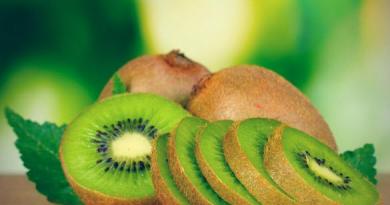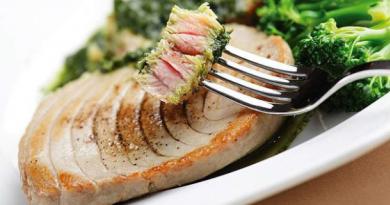Hello dear readers! In the article we discuss the benefits and harms of sunflower seeds, how and to whom it is better to use them, and in what quantities. Using the information from the article, you will learn the new properties of this product, the effect of sunflower seeds on well-being and weight.
Sunflower seeds are an amazing natural product. Their nutritional value is several times higher than the value of meat and eggs, and for the digestion process they are much easier.
The benefits and harms of sunflower seeds
Seeds are a useful product for women's and men's health, but they can also be harmful if used improperly.
For women
Sunflower seeds contain an impressive complex of vitamins and amino acids that are necessary to maintain the health and beauty of a woman:
- vitamin A - maintains visual acuity, improves the condition of the skin and hair;
- vitamin B12 - affects resistance to stress, promotes skin rejuvenation;
- vitamin E - slows down the aging process;
- vitamin D - helps to absorb calcium, affects the condition of teeth, nails and the reproductive system;
- unsaturated fatty acids - activate lipid metabolism, fighting excess weight.
Potential harm to women - side effects:
- allergic reactions;
- damage to tooth enamel - if you gnaw seeds with your teeth, it is better to clean them with your fingers, which contributes to the development of fine motor skills and stress relief;
- overweight - you can consume no more than 35-40 grams of seeds per day, as they contain fats.
For men
Seeds are also useful for men's health:
Potential harm for men:
- overweight - with a tendency to be overweight, it is important to monitor the amount of seeds consumed, as they are very high in calories;
- enamel damage - it is better to refuse to click the seeds with your teeth, clean the seeds with your fingers, this will improve motor skills and calm the nervous system;
- exacerbation of diseases of the gastrointestinal tract - in the presence of colitis, ulcerative and cholelithiasis, it is better to abandon the use of seeds.
This video talks about the dangers of rancid roasted seeds and compares the leading brands in the industry.
Calorie content and BJU of roasted seeds
Nutritional value of 100 grams of seeds:
- calorie content - 572 kcal;
- proteins - 21 grams;
- fats - 53 grams;
- carbohydrates - 4 grams;
- glycemic index - 35.
Seeds in their composition have up to 25% proteins, amino acids, methionine. 35% fat in the form of unsaturated acids.
Do roasted sunflower seeds make you fat?
The question “is it possible to get fat from seeds” arises very often. Ideally, it is better to eat raw seeds, slightly dried, but unfortunately, they do not have that familiar, pleasant taste. Those who follow diets, however, should give up roasted seeds, or even better, completely eliminate them.
The consumption rate per day is 35-40 grams of seeds, then you can not be afraid of consequences for the figure.
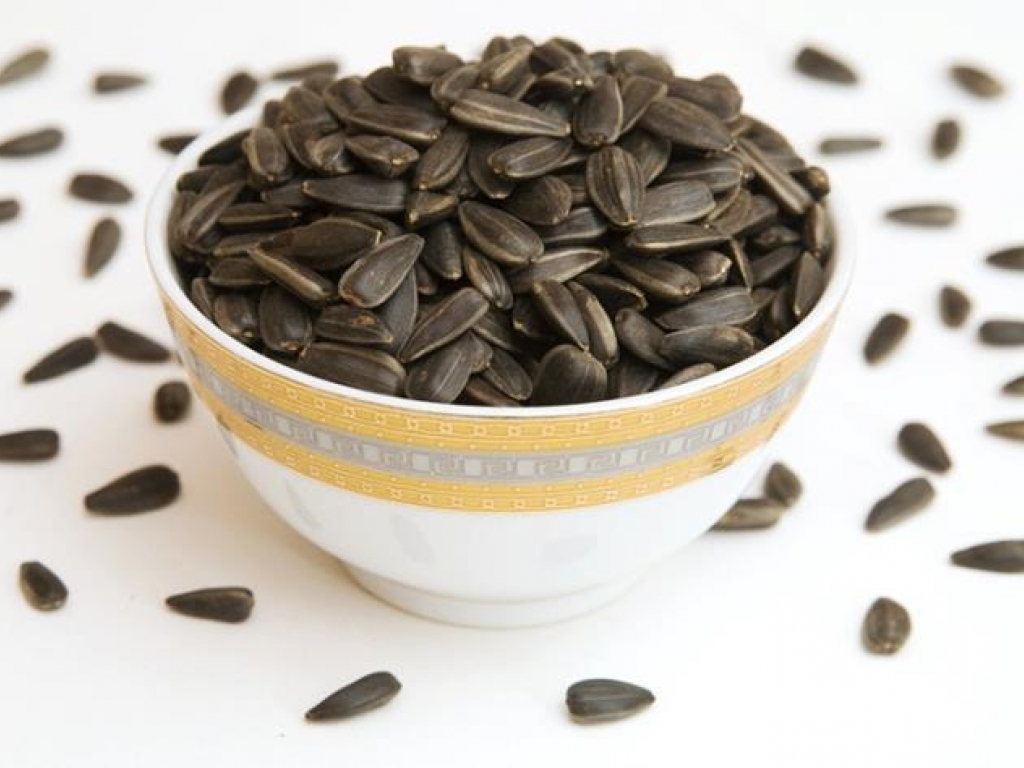
Features of the use of seeds
For the following categories of people, there are separate recommendations regarding the use of seeds:
- With diabetes, you can use dried seeds. Doctors recommend them, but in limited quantities, as they are high in calories.
- With high cholesterol, seeds are allowed, as they contain phytosterols in their composition, which help reduce bad cholesterol.
- During pregnancy, seeds are a product that is indicated for use by doctors, they help to cope with heartburn and constipation. Seeds have a high nutritional value, which is beneficial for mom and baby.
- For children from 1.5 years old, seeds are useful, as they contain a large amount of vegetable protein, amino acids, and vitamins. But you need to give them to your child a little, about 15 seeds 3 times a week. In this case, it is better to limit yourself to dried seeds or roasted in the microwave.
- In the process of losing weight, you can use seeds, but in small quantities - up to 40 grams. They balance the lack of fat, which is formed during dietary nutrition.
Nursing mothers should weigh the pros and cons before eating seeds.
Benefit:
- calm the nervous system of mother and baby;
- positively affect the mental and physical development of the child;
- improve the functioning of the genitourinary and cardiovascular systems;
- improve the quality of breast milk.
Harm:
- in some cases cause allergies in babies;
- provoke constipation and colic in a child.
Why do you want sunflower seeds
The desire to gnaw on seeds occurs in people who are faced with a deficiency of vitamins and antioxidants. But this can still indicate an acute shortage of magnesium in the body. Smokers, on the other hand, use the seeds as a substitute for a cigarette in order to keep themselves busy if there is no way to get a new dose of nicotine.
Allergy to sunflower seeds
Allergy to sunflower seeds can manifest itself in the first hour of consumption or immediately - within a few seconds. The main symptoms of allergies include:
- hives;
- runny nose, cough, lacrimation, difficulty breathing;
- angioedema;
- difficulty in swallowing;
- nausea;
- increased gas formation;
- stool disorders.
In rare cases, an allergic reaction to the seeds causes dermatitis or eczema. If you are allergic, you should refuse all products that may contain seeds or their oils.
If an allergy does not occur with every use, then the reasons lie in other factors:
- reactions to chemical impurities that could get into the soil;
- cross-allergy to other products;
- exacerbation of allergies.
How to cook sunflower seeds
First, the seeds should be thoroughly washed under cool water, then poured into a hot frying pan, a little salt. Stir until a characteristic crackle appears. At this point, they need to be removed from the heat for about a minute, without stopping stirring, then return to the fire again, repeat the procedure three times.
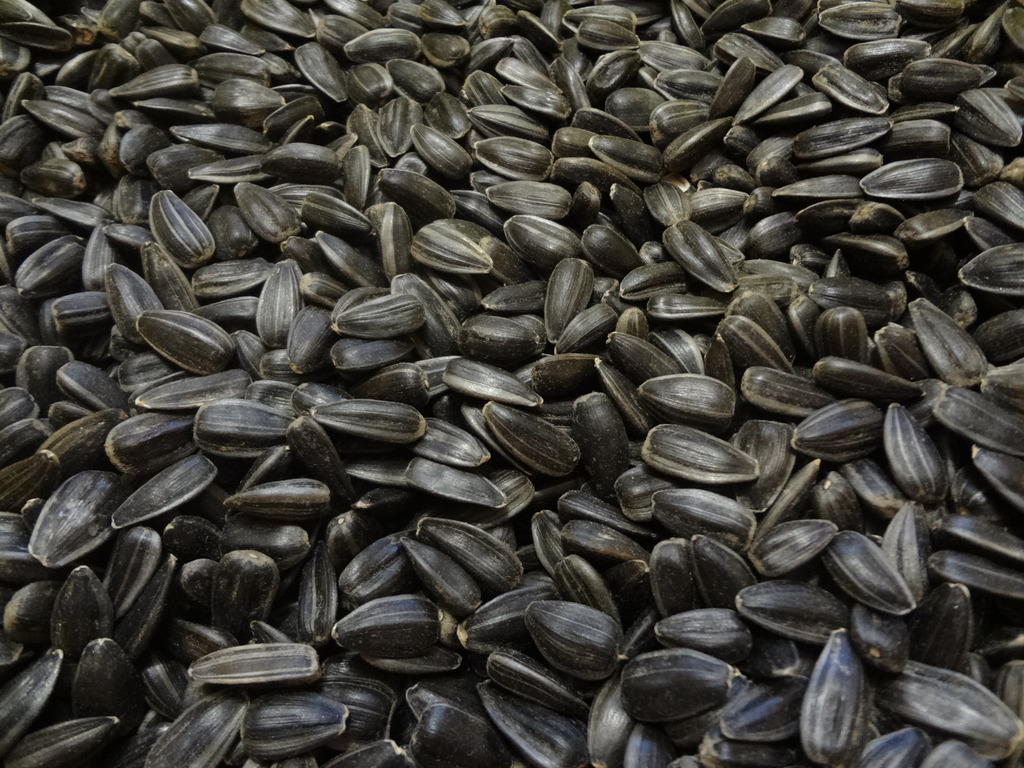
Halva from sunflower seeds
Recipe Description:
In order for the halva to turn out tender and soft, you need to use sugar syrup.
Ingredients:
- Flour - 1.5 tbsp.
- Sunflower seeds - 400 g.
- - 150 ml.
- Sugar sand - 200 g.
- Water - ⅓ st.
How to cook:
Roast the sunflower seeds and run them through a blender. Heat the flour in a pan, stirring constantly. Combine the flour with the seeds and grind a couple more times in a blender. Pour water over sugar and bring to a boil over low heat. When a foam forms, remove it and reduce the heat. The syrup should be actively boiling.
Combine the resulting syrup with oil and ground seeds. Mix the combined ingredients and pour into a mold. Place a press on top and refrigerate until firm.
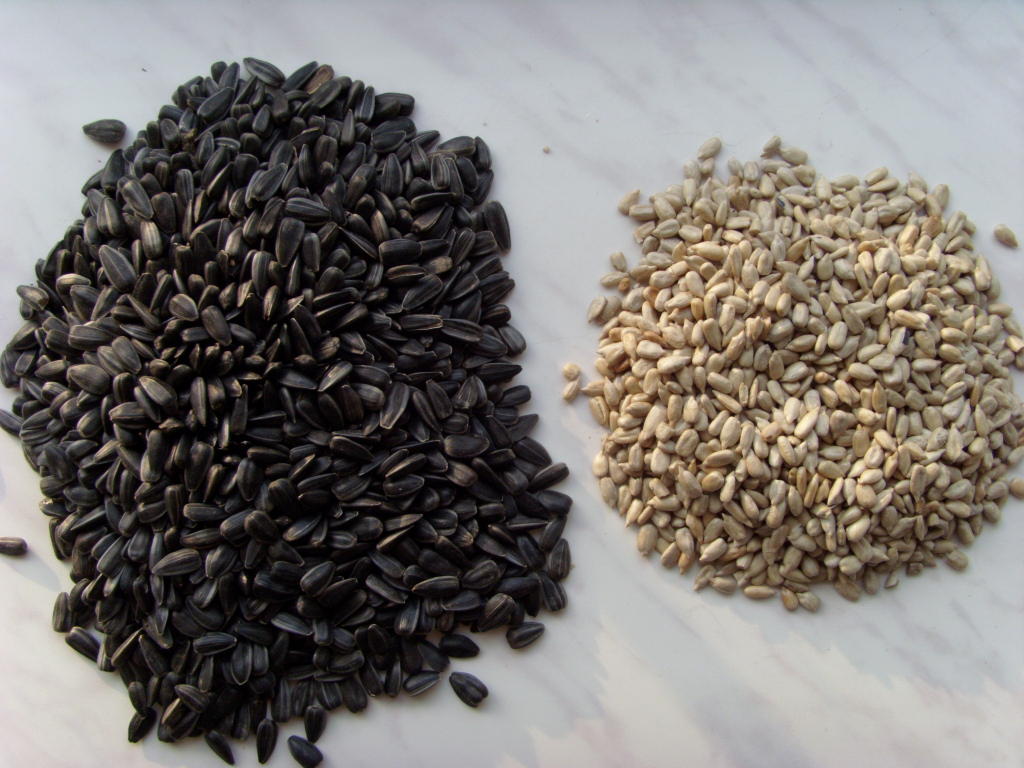
Sunflower Seed Cookies
Recipe Description:
Seed biscuits are a healthy and nutritious dessert.
Ingredients:
- Sugar - 100 g.
- Flour - 200 g.
- Roasted seeds - 100 g.
- Butter - 100 g.
- Salt - 1 pinch.
How to cook:
Grind cold butter and put in a bowl, pour flour on top. Mix flour and butter with a fork. Add sugar and salt. Grind the seeds in a blender. Mix the mass with flour. Knead to a thick dough. Put the dough in a plastic bag and put it in the refrigerator for an hour.


